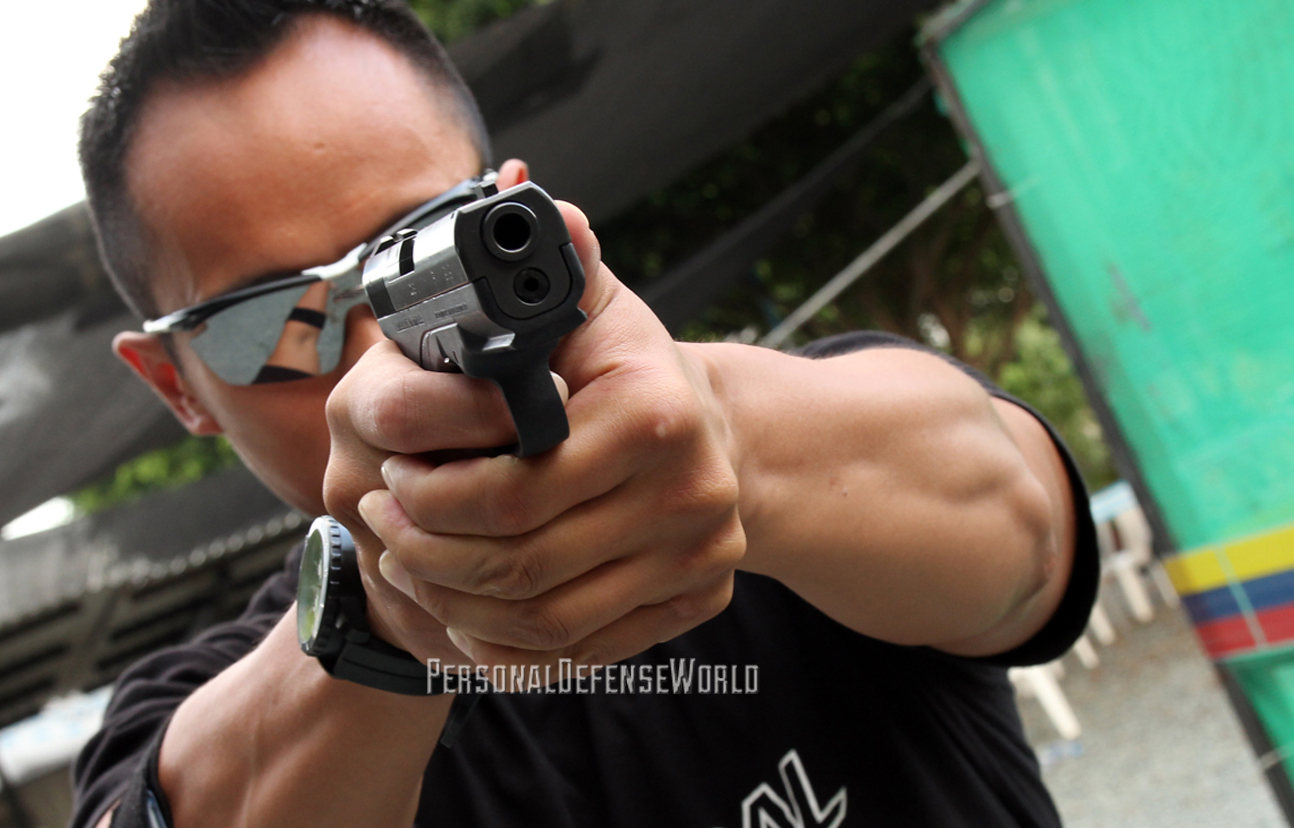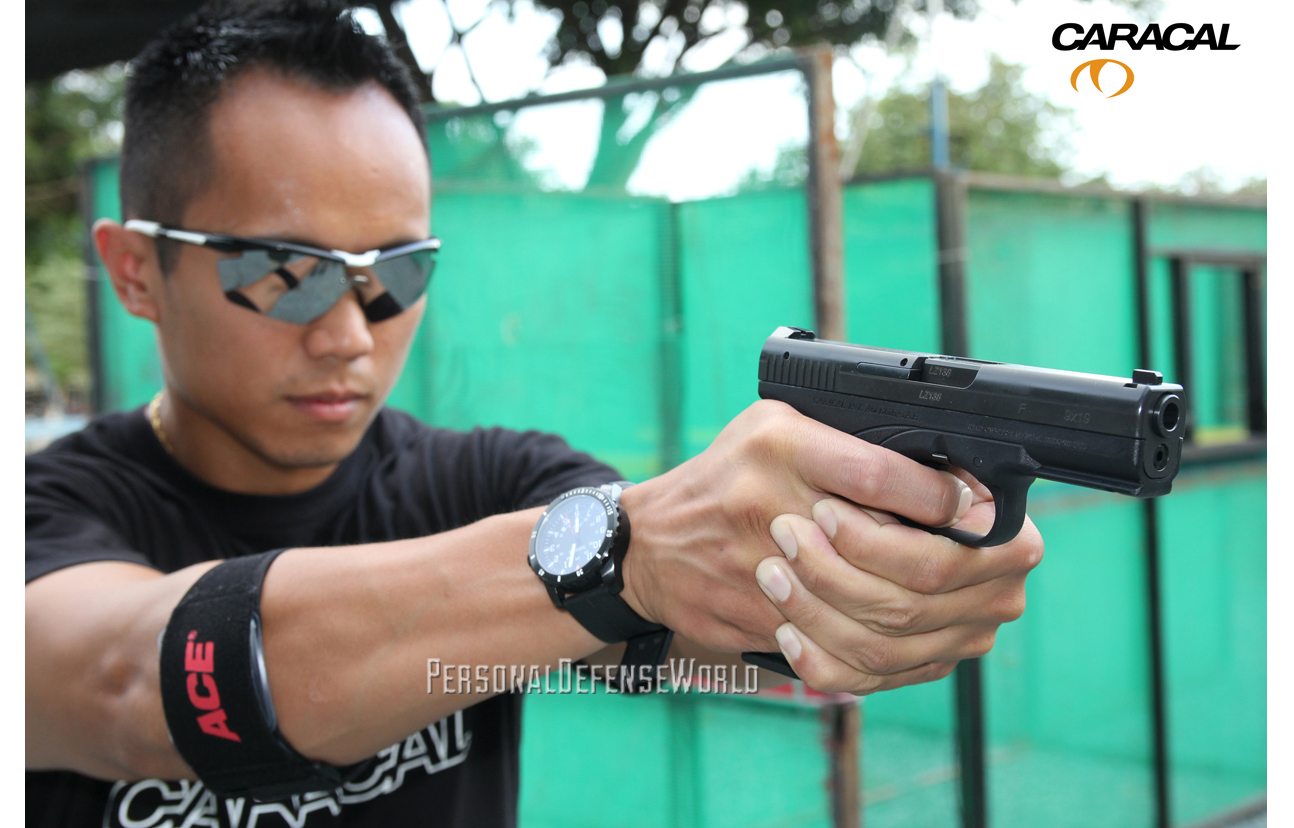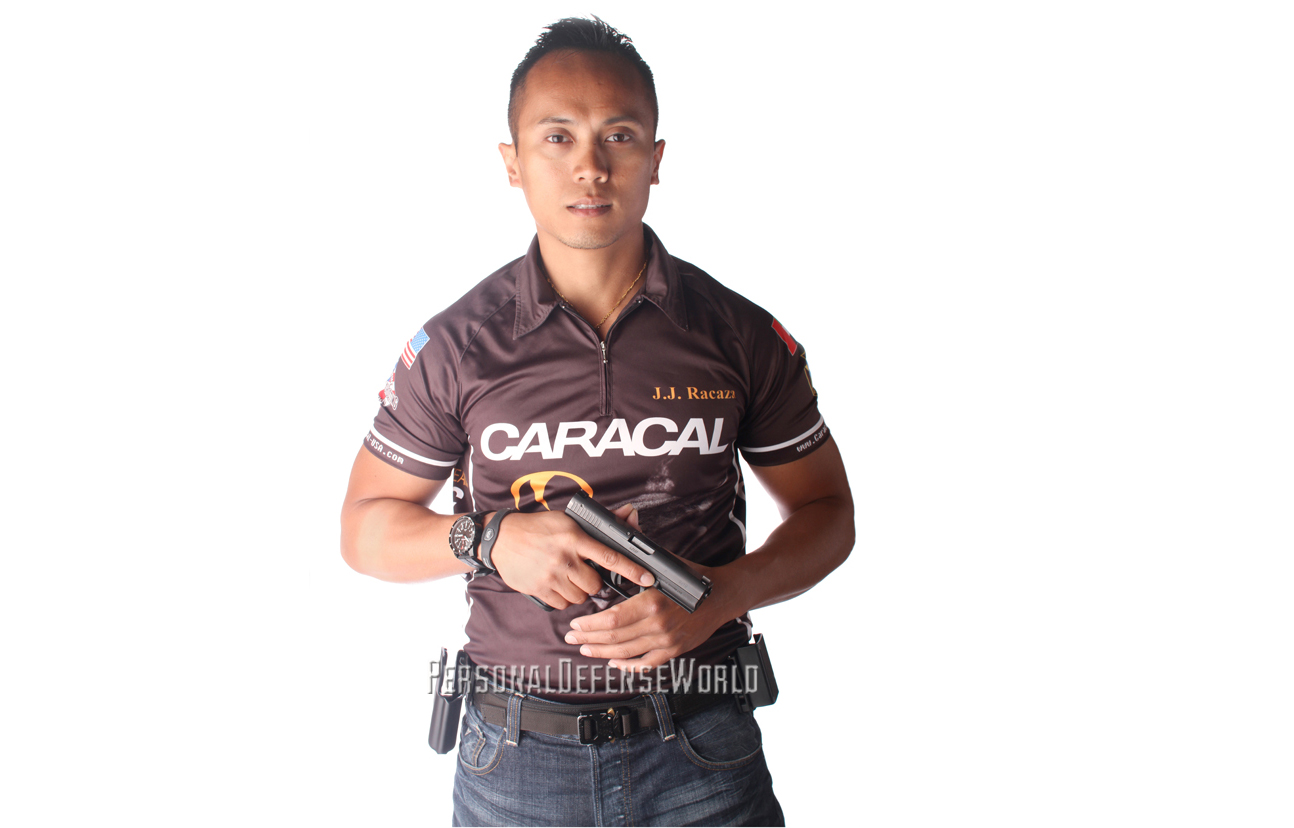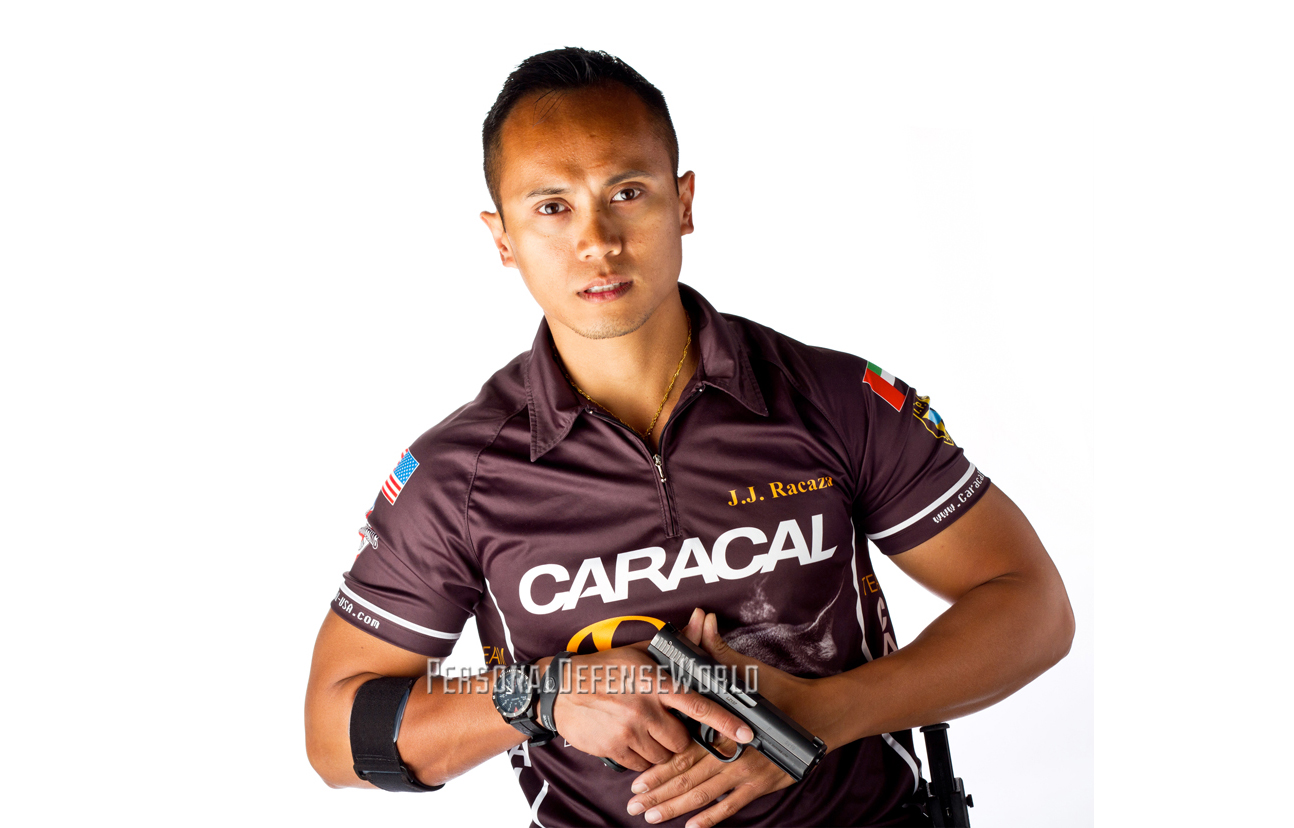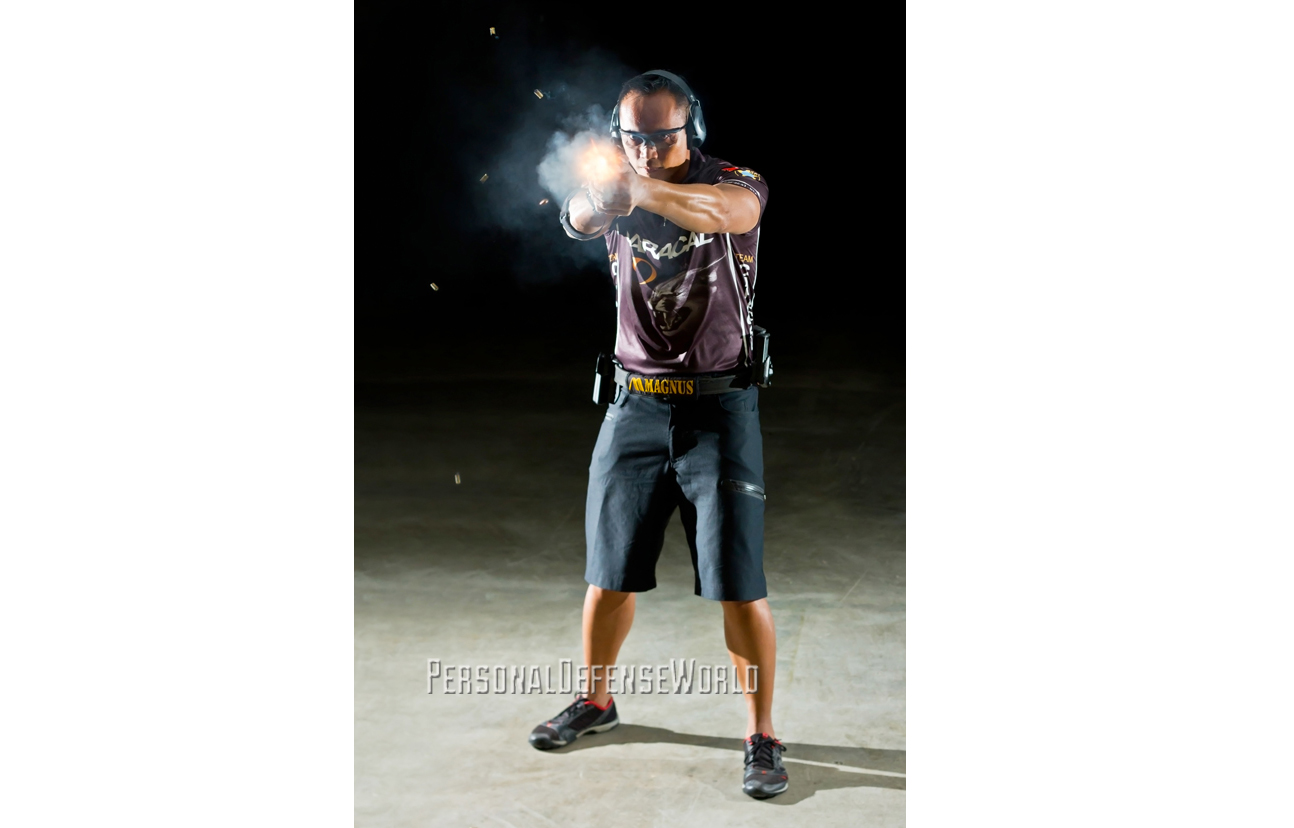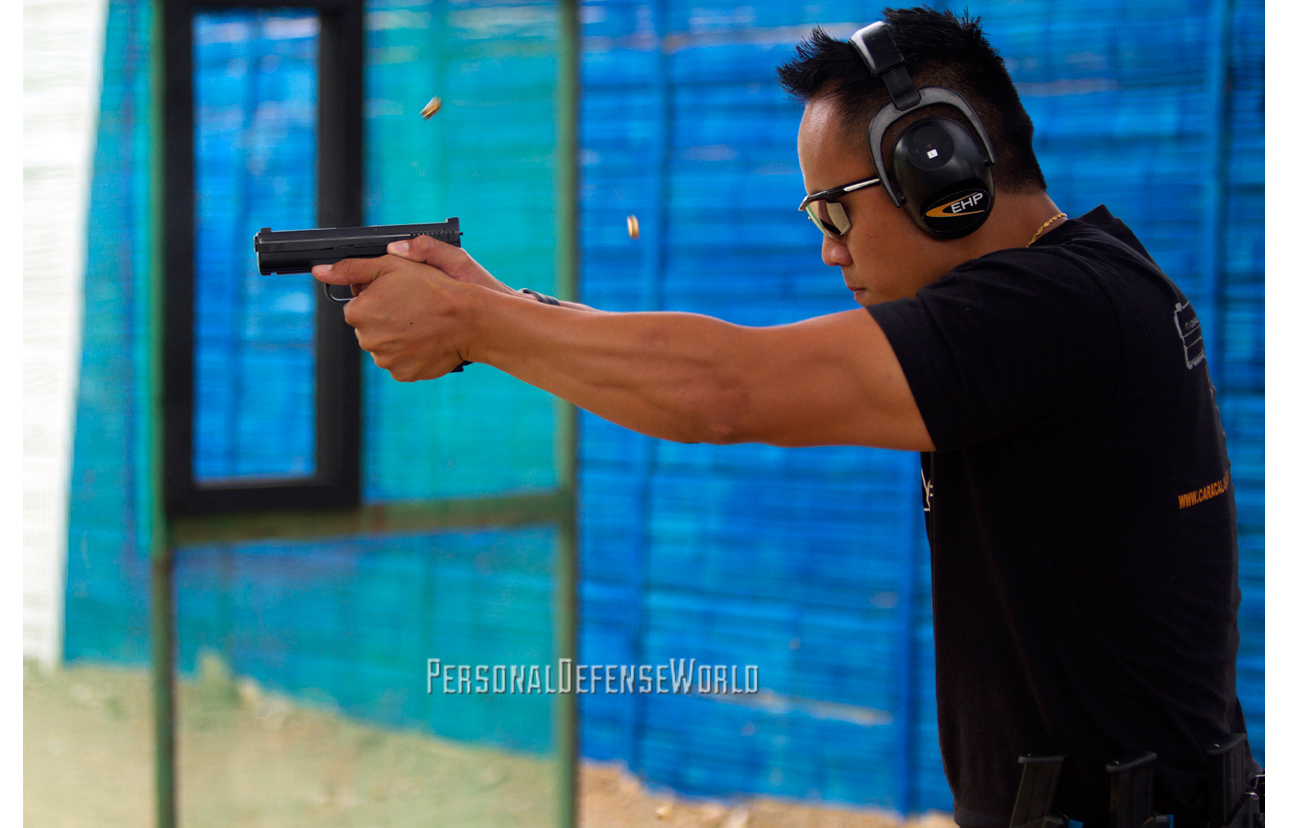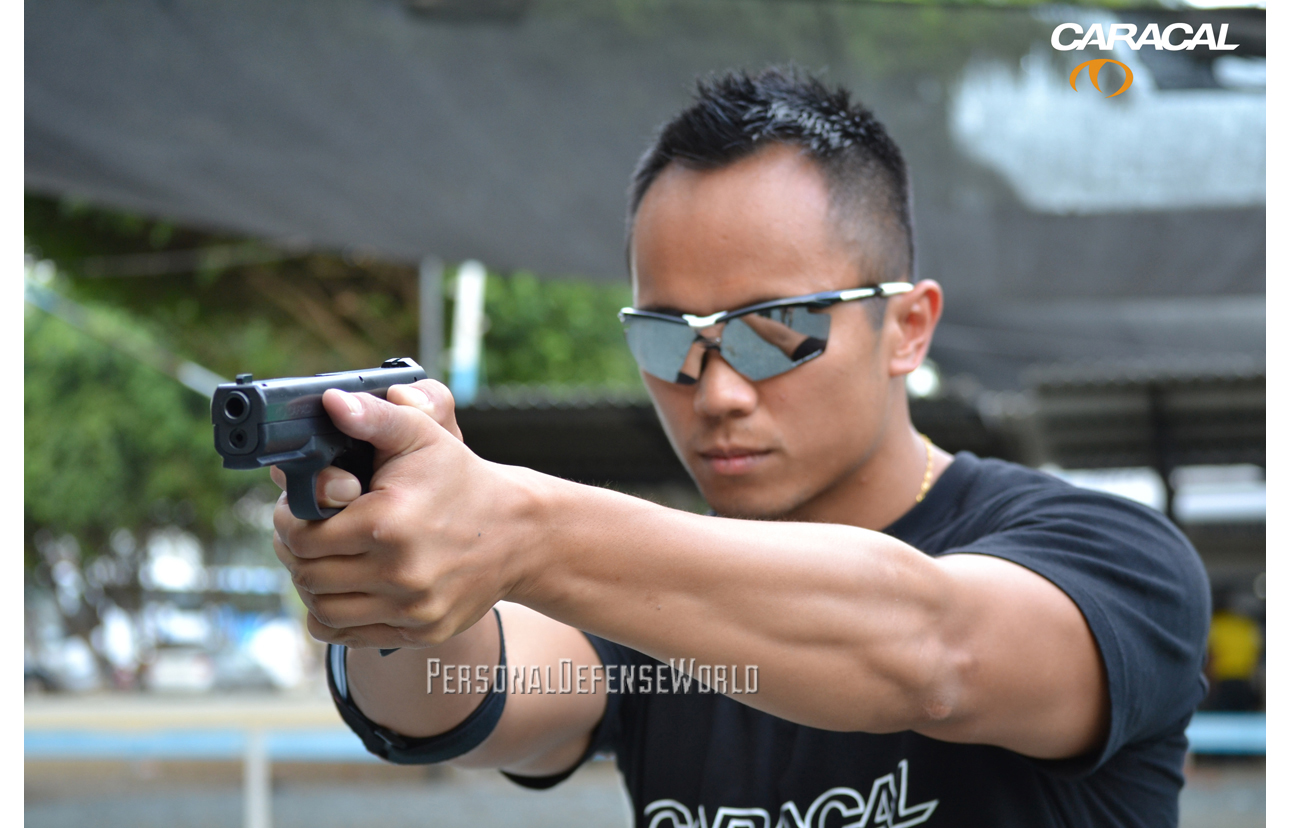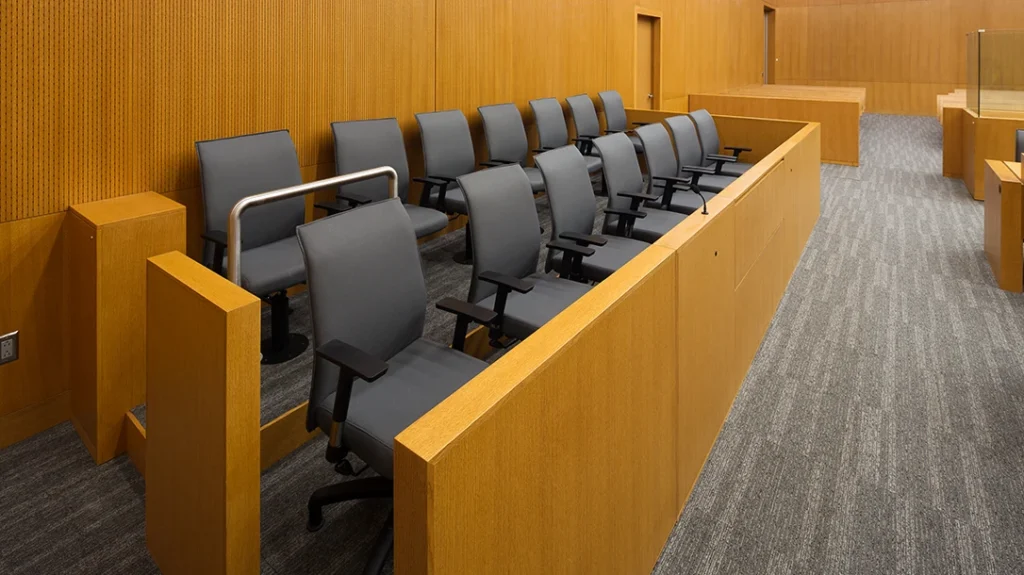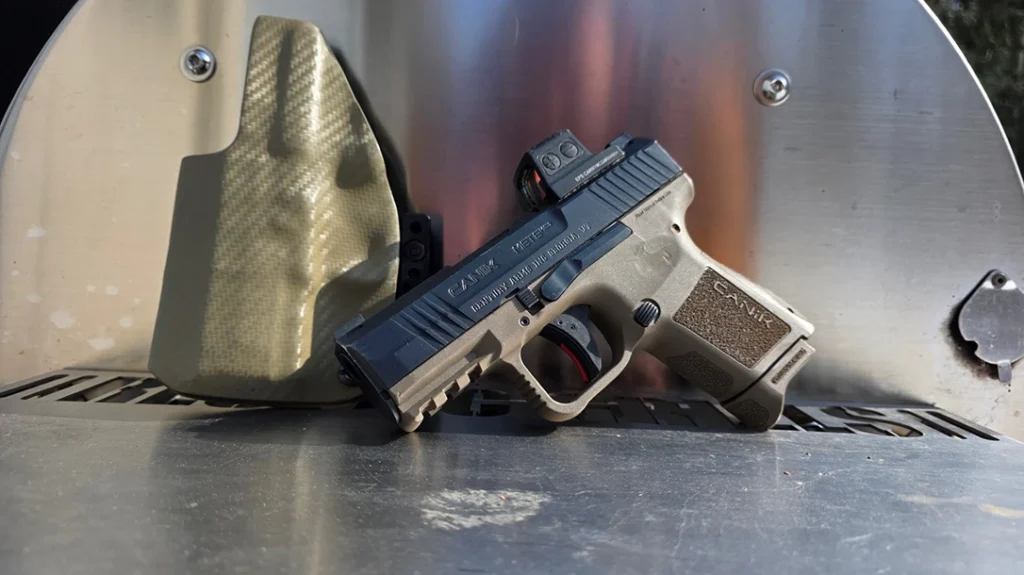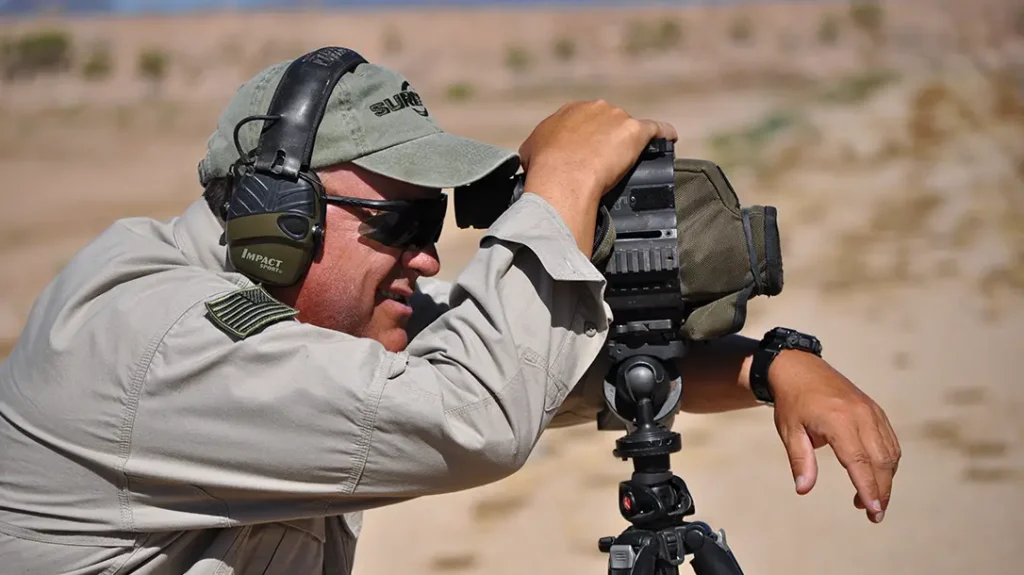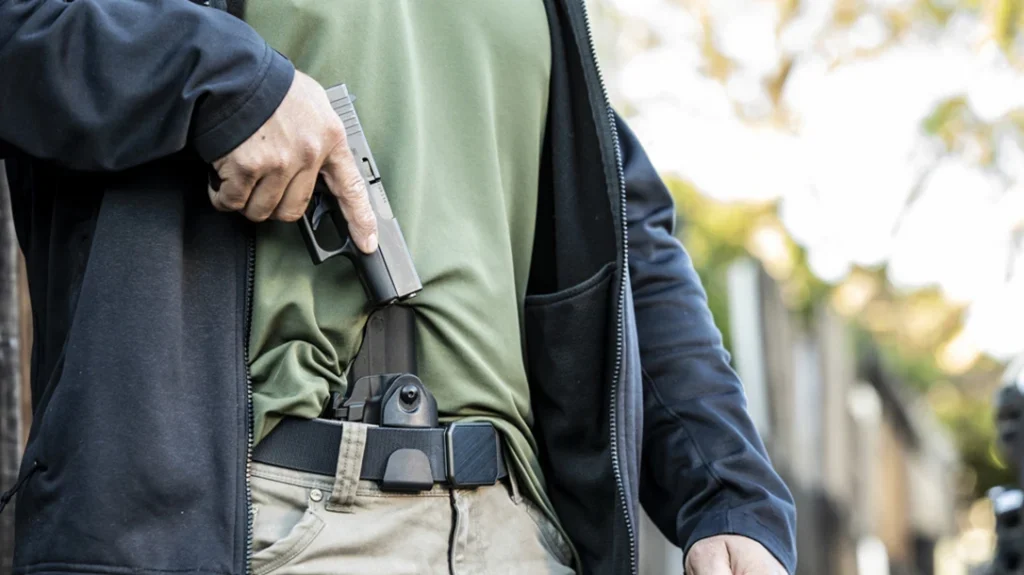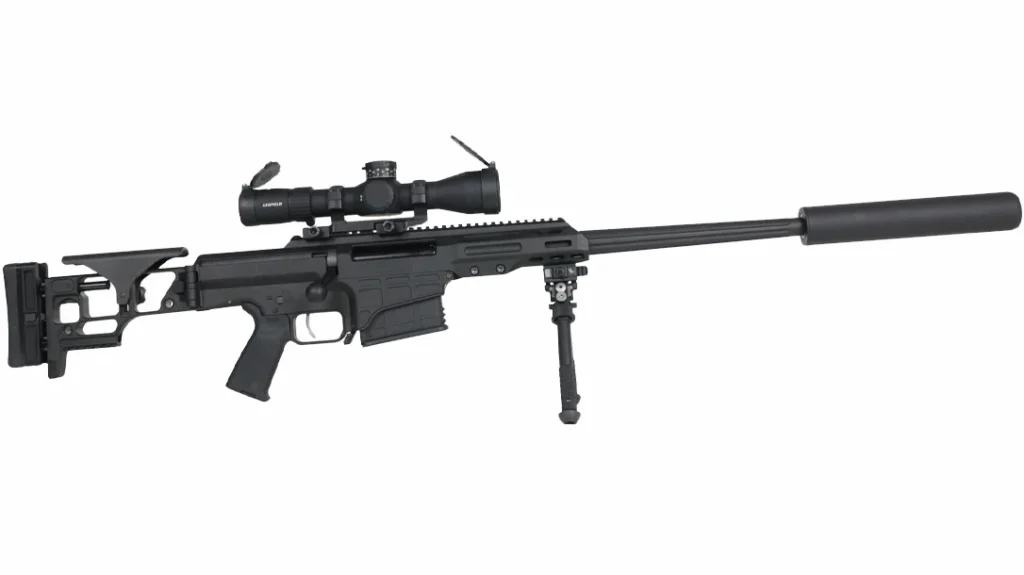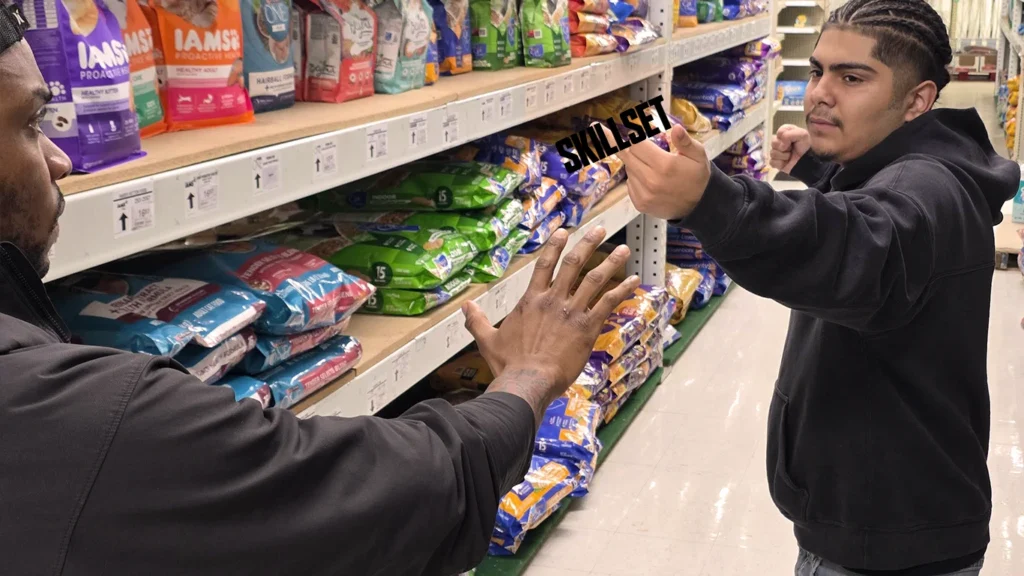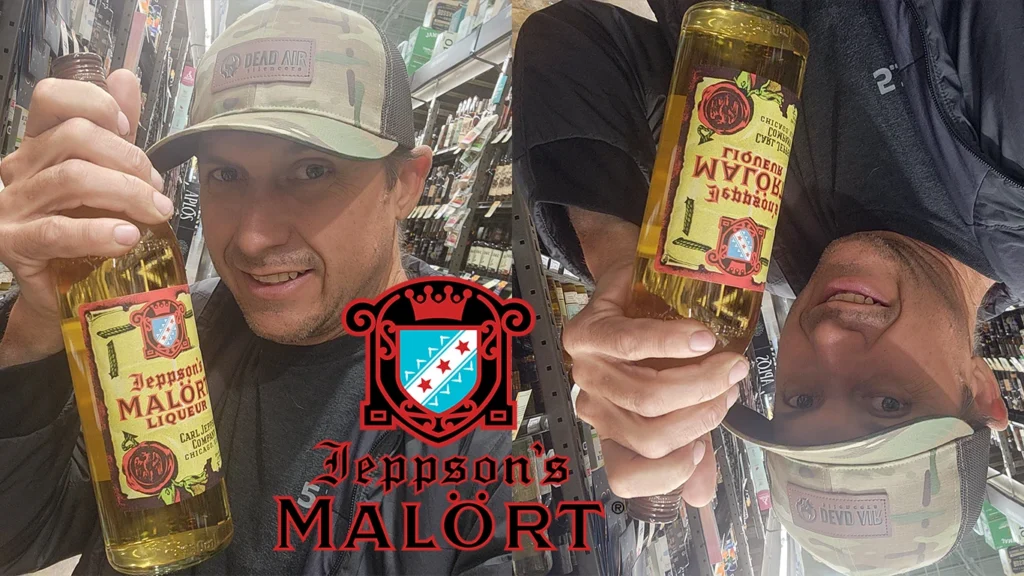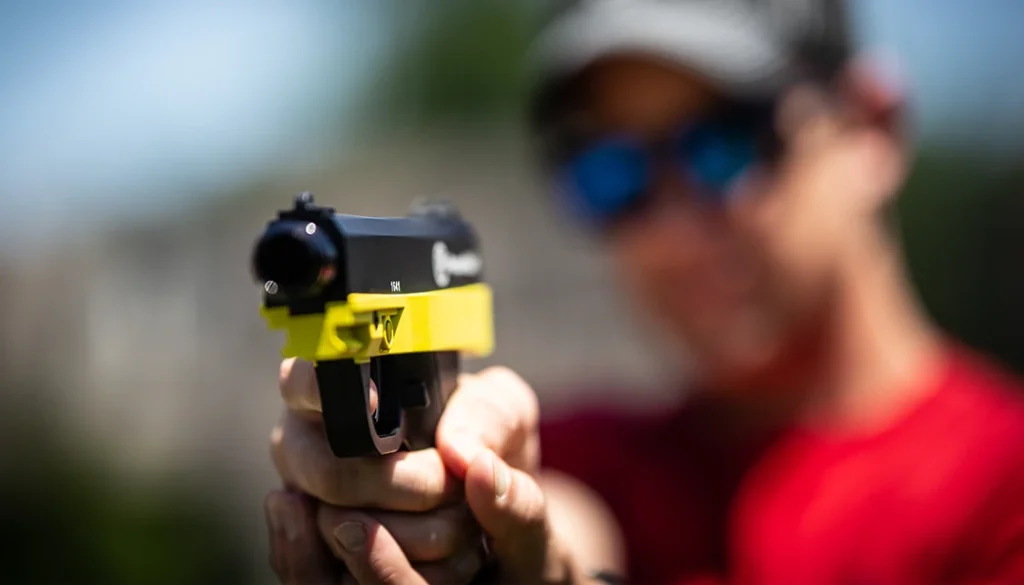Simon “J.J.” Racaza was born in Cebu City, Philippines, on April 16, 1980. Shooting air rifles at the age of six, he was introduced at age nine to handguns by his father, an A-class shooter (one class below a Master). Handed a 1911 .45 ACP, J.J. immediately marked himself off as a prodigy, hitting the target shot after shot with almost effortless ease. Soon he was dominating the professional circuit, consistently placing in the top 10 in competitions entered by men twice and three times his age; by the time he turned 13, J.J.’s was a name to be reckoned with in the Philippine shooting community.
In 1993, J.J. Racaza and his family migrated to the United States. In 1999, he entered the American competitive circuit and immediately started winning matches. His first major victory was at the NJ coalition, and from there he developed an impressive record, consistently placing in the top five, if not first overall, in a string of major matches, including the ISPC National and World Championship. A member of Team Caracal, J.J. is a five-time world champion, winning twice while a member of the U.S. Open team and three times as an individual. Most recently, he won the production division of the July 2013 World Steel Challenge. Juggling his full-time job as a federal agent and trainer with his professional shooting commitments (among which was a stint on the first season of the History Channel hit Top Shot), J.J. is currently aiming to earn a spot on the U.S. Production Team to compete in the 2014 World IPSC Championships.
What was the first handgun you ever fired?
The first gun I ever fired was a bolt-action .22 air rifle. It was my father’s when he was growing up, and he gave it to me when I was around five years of age. This rifle is where I learned basic marksmanship; if the sights are not lined up or if I slap the trigger, then my shots will not hit what I am aiming at. However, the first handgun I fired was a .45-caliber Colt Commander 1911 at the age of six. Traditionally, it would make more sense to introduce a very young kid to a smaller caliber, but we did not have this luxury. At the time, my father could only afford that one handgun. And due to some tough circumstances that we had experience early on, I had to learn how to handle and shoot this gun. My father was a doctor and would sometimes be called for an emergency surgery in the middle of the night.
Advertisement — Continue Reading Below
How did you get into competitive shooting?
I got into competitive shooting by just going with my father to the range to learn the basics of handling and firing the handgun. One day, during one of my dad’s normal practice sessions, he invited me to try shooting one of the scenarios they were practicing. Before I shot, my dad whispered to me, “Shoot only as fast as you can hit each target. Don’t you dare try to go any faster than that.”
From then on, I was hooked. I started to dry-fire for 45 to 60 minutes per day, perfecting my draws and reloads with the 1911. Financially, we didn’t have the ability to shoot a lot, so we would share the holster setup and the gun during our dry-firing sessions. My goal was to always try to be as fast or faster than my dad with the draws and reloads.
What’s your favorite style of shooting?
My favorite style of shooting is really any action/dynamic pistol shooting. There is nothing like the rush you feel when you have to push yourself to the edge of your ability, and yet control it enough to maintain accuracy and consistency.
Advertisement — Continue Reading Below
What is your favorite chambering?
My current favorite chambering would be a 9mm for both competition and my carry. Before, I would have said that I like the 9mm or .38 Super for competition and a .40 or .45 for carry. But due to the advancement in technology with bullet designs lately, 9mm just makes more sense nowadays.
What kind of off-range training do you do throughout the year?
There are a lot of things I try to maintain throughout the year. Living in New Jersey, where outdoor pistol ranges are rare and only having about seven to eight months of good shooting weather, becomes a challenge in of itself to maintain a level of proficiency with your firearm. So, during these cold weather days, I try to work on my physical fitness as much as I can, and I review my shooting videos for the year and take notes on where I find weaknesses.
What’s your fondest match memory?
My fondest match memory was in 2006, at the World Speed Shooting Championships. That was the first time I won an individual world title. At one point in this match, Todd Jarrett broke the world record on “Five to Go,” and then I was two shooters behind him. The crowd went wild once it was confirmed that he did break the world record, right when I was standing in the shooter’s box preparing for my turn to shoot. So pressure naturally was building up, especially since I was currently in the lead at this point. In Steel Challenge, you shoot the best four out of five runs, throwing away your worst run for your total time. Run after run, I felt good and controlled until my fourth run, when I encountered a malfunction and caused a 2-second delay. That is huge when matches are won and lossed by hundredths of a second. I had to have a perfect run on my final string. Luckily, I was able to find the strength to control my nerves enough to get a solid run, and I managed to break the world record Todd Jarrett had just set a few minutes before.
Advertisement — Continue Reading Below
Do you think that competitive shooting has applications for self-defense?
Absolutely! As long as the person understands that competition is just that and does not try to mix tactics while shooting the match, whatever discipline it may be. Through competition, you will improve your shooting beyond a normal pace, since you will push yourself to learn the techniques in order to shave time or get more accurate. This will only make you a better shooter altogether. Your natural point of aim, your trigger manipulation and your sight-tracking ability will all be more natural without much focus.
Any advice for aspiring shooters?
Capture videos of yourself shooting, and review and study them diligently. Watch other shooters you are competing with and compare yourself to them. Learn as much as you can about the game, but keep your focus on accuracy and not speed. Speed will come eventually, but building a solid foundation from the ground up will pay dividends in the long run. You just have to remember that all the Grand Masters now were once beginners. The difference is they made the conscious decision to stick with it and get better, no matter the hurdle.
